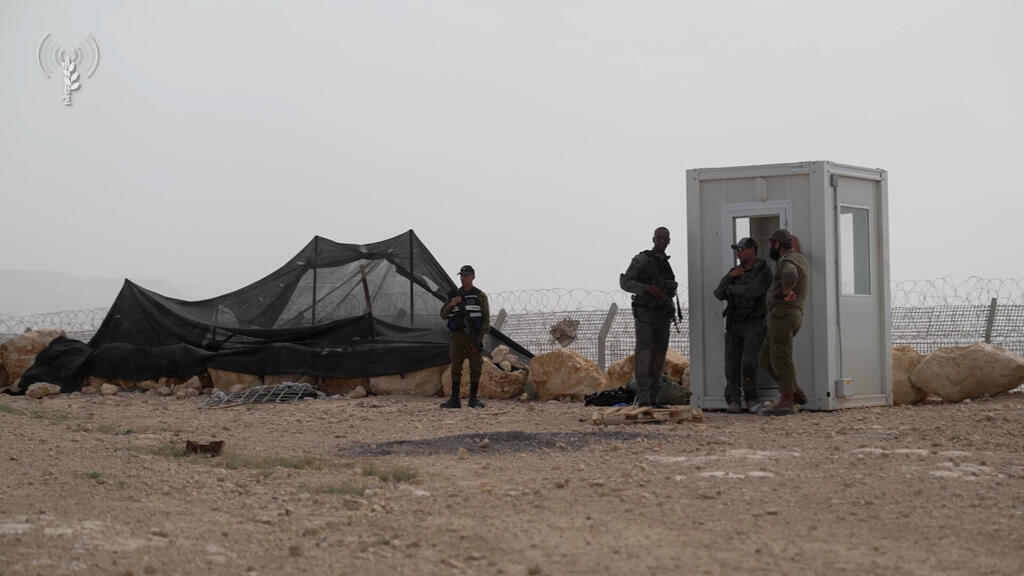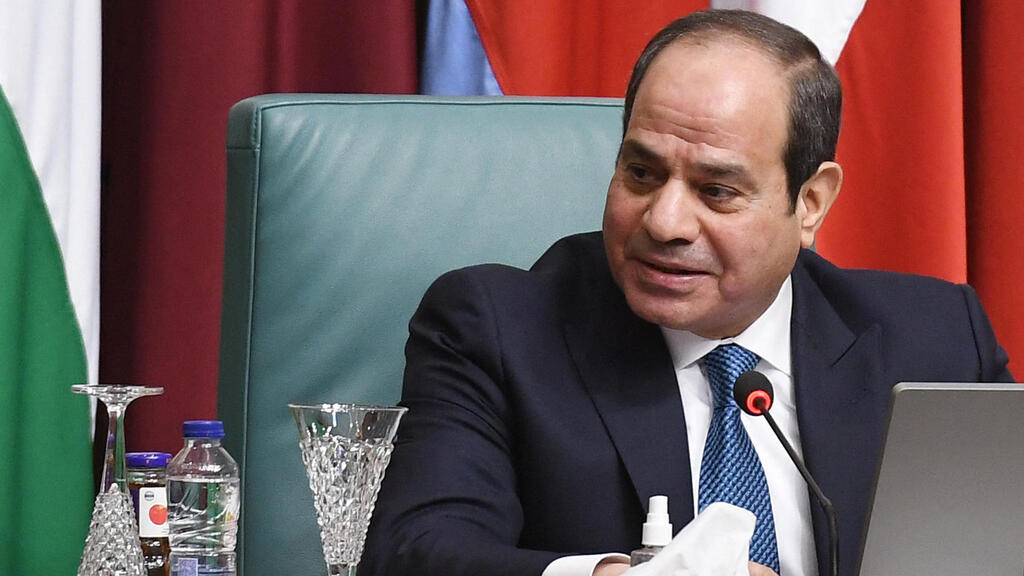The deadly attack on Saturday morning, in which an Egyptian police officer and three Israeli soldiers were killed, took place amid a critical moment in Egypt's relations with Israel, and with Middle Eastern countries in general. From what was said in Cairo following the attack, we can understand quite a bit about Egypt's perception of this reality, and even more so from what was left unsaid.
Related Stories:
First, the announcement of the attack by the spokesperson of Egypt's security forces came only in the afternoon, hours after reports in the Israeli media. The Egyptian spokesperson, not coincidentally, refrained from disclosing the name of the officer-turned-killer and insisted that it was an incident in which he pursued drug smugglers who crossed the Israeli border and got involved in a firefight in which an Israeli male and female soldier were killed. According to the Egyptian version, moments later, a third Israeli soldier was killed, and the Egyptian security officer met his death in the exchange of fire. The truth, of course, is far from that, as no traces of drug smugglers were seen or found in these intense events.
2 View gallery


Troops at the site of an attack by an Egyptian border policeman
(Photo: IDF Spokesperson's Unit)
Another puzzling aspect, to say the least, was that the Egyptian spokesperson's statement included expressions of condolences to the families of the victims and wished a speedy recovery to the two injured individuals. Who are the victims he was referring to? Who are the injured? Did the spokesperson intend to also express sympathy for the Egyptian officer's family? It is unclear. In similar cases in the past, and there were many, the full names of the foreign casualties appeared quickly in the Egyptian media.
What was said and left unsaid in the statement also needs to be analyzed in context of the meeting that took place in Cairo at almost exactly the same time – the meeting between Egyptian President Abdel Fattah el-Sisi and his wife Intissar el-Sisi, and the United States' First Lady Jill Biden and her daughter Ashley, after they traveled from the wedding at the Jordanian royal palace to visit the Great Pyramid of Giza. Oddly enough, the Egyptian president did not take advantage of the high-profile visit and the accompanying photos to comment on the event in Sinai.
2 View gallery


Egyptian President Abdel Fattah el-Sisi did not comment on the incident at the border
(Photo: AFP)
The silence in the presidential palace was replaced by persistent voices on social networks, attempting to promote the claim that the assailant was a Hamas operative disguised as an Egyptian security officer. Officials in Egypt did not rush to deny this, and remained silent. Later on, attempts were made via social media to argue that the perpetrator was a drug smuggler associated with Hezbollah and, once again, the Egyptian representatives chose to remain silent. It was only after reports in the Arab media about a joint investigation committee between Egypt and Israel that the vague Egyptian statement surfaced, which committed only to an Egyptian investigation.
On the Israeli side, on the other hand, there was a rush to emphasize the importance of cooperation between the countries' security forces and the need to preserve it, despite this not being the first time that Egyptian security personnel shot and killed Israelis. It is no secret that Israeli planes and helicopters are often seen in the skies of Sinai, with the knowledge and approval of the Egyptians. However, the current attack comes at a time when joint activities are becoming complicated in the face of Egyptian preparations for possible cooperation with Iran.
The initiative from Tehran has not yet received a positive response from Cairo, but it is clear to everyone that, at this time, Egypt is not interested in presenting to the world any joint efforts with Israeli security forces. Jill Biden's visit to the presidential palace in Cairo may indicate that Egypt has not made a decision on the matter yet, but there is concern that the money shipments from Iran and Saudi Arabia will distance Sisi from Israel. On top of all of this, the Egyptian police officer is being portrayed as a hero on social networks.
Israel will do its best to remain connected to Egypt, whether in security contexts or in economic cooperation, so long as Egypt is interested. The Iranian-Saudi effort to lure Egypt into the new military alliance will not be an easy pill to swallow for Israel, especially after 50 years in which they have maintained peace, even though it is a cold peace. The arrangements achieved during Sisi's rule are deeper than those achieved with his predecessors, including in security matters, and senior officials in Israel have already warned their counterparts in Cairo about the dangerous Iranian telegrams.
Soon, both the Israeli and Iranian embassies in Cairo will also operate concurrently, and in Jerusalem they must tread cautiously with Egypt. These relations also are crucial for joint activities against Hamas in Gaza and for cooperation on issues related to the entire Arab world. Saturday's shocking attack, against the backdrop of Iran's entry into the picture, presents a significant challenge overall.
Smadar Peri is the Arab world commentator for Yedioth Ahronoth

